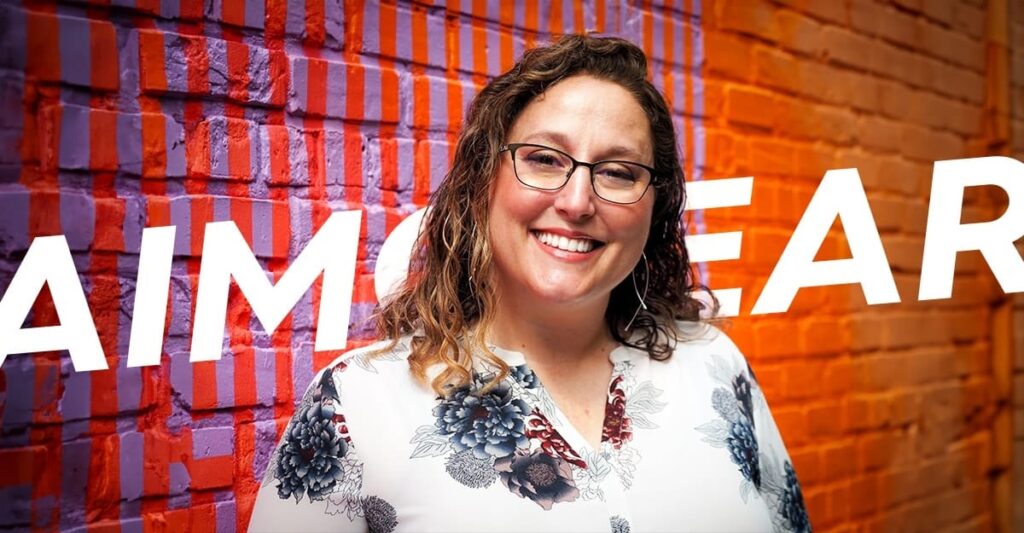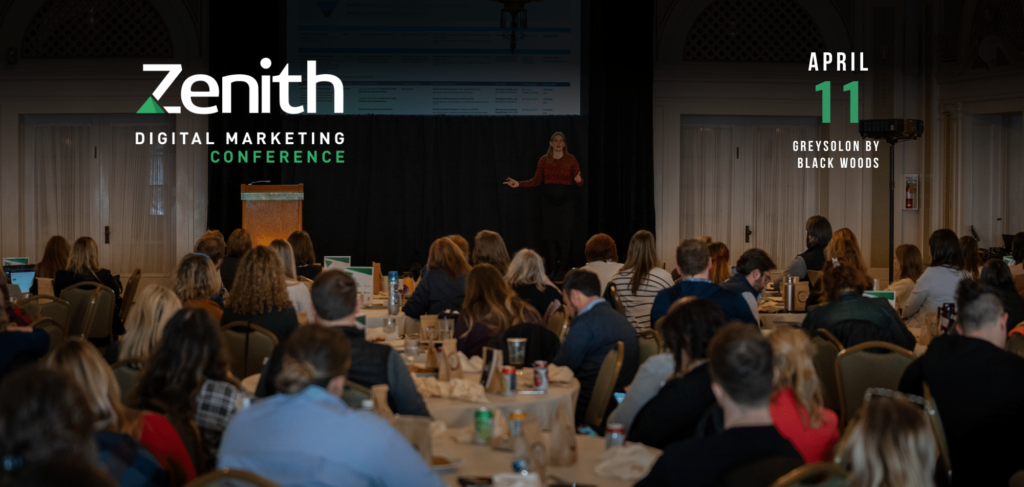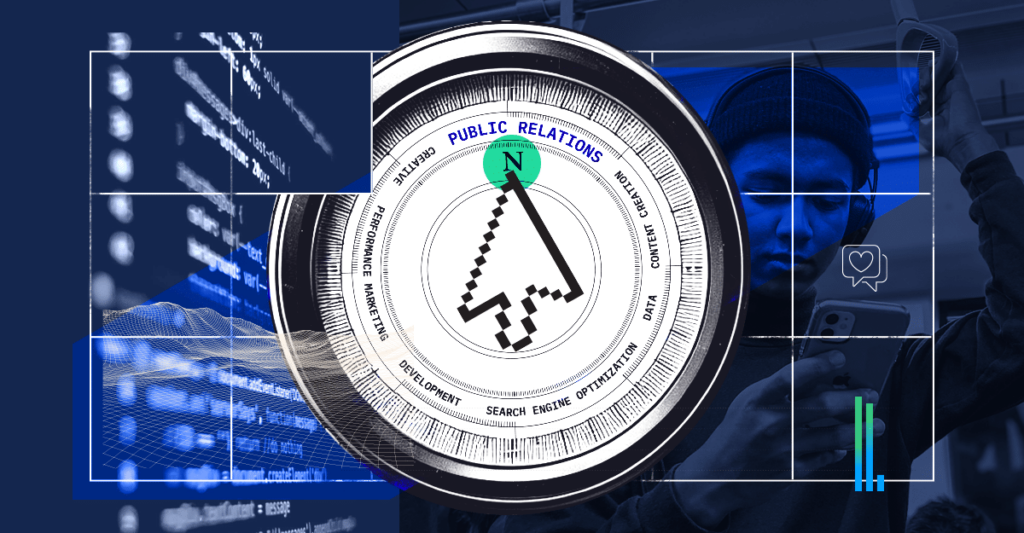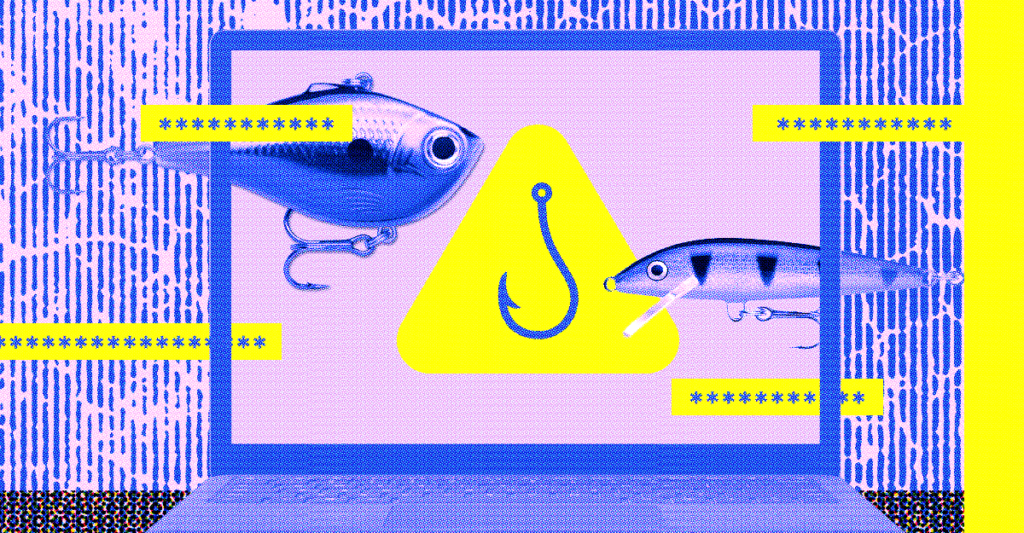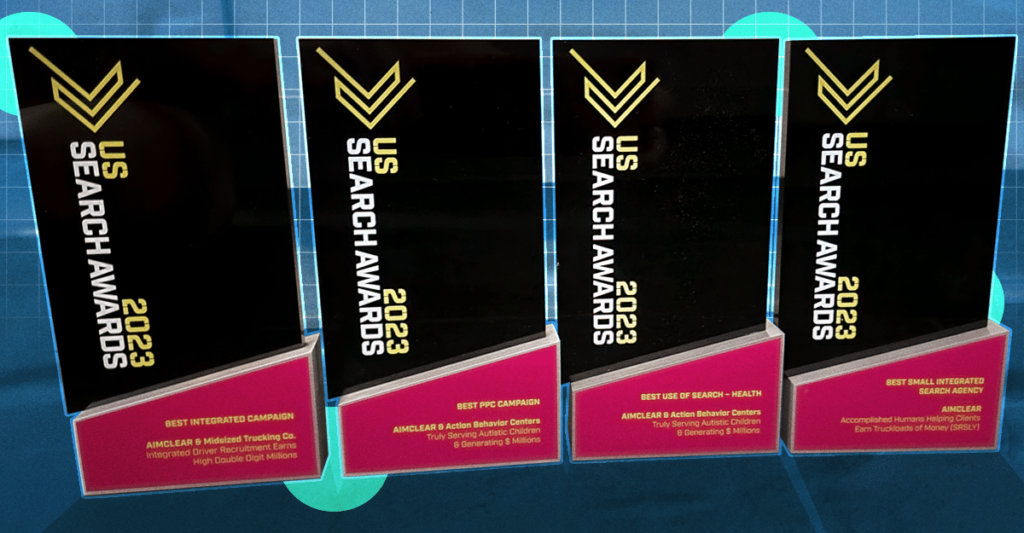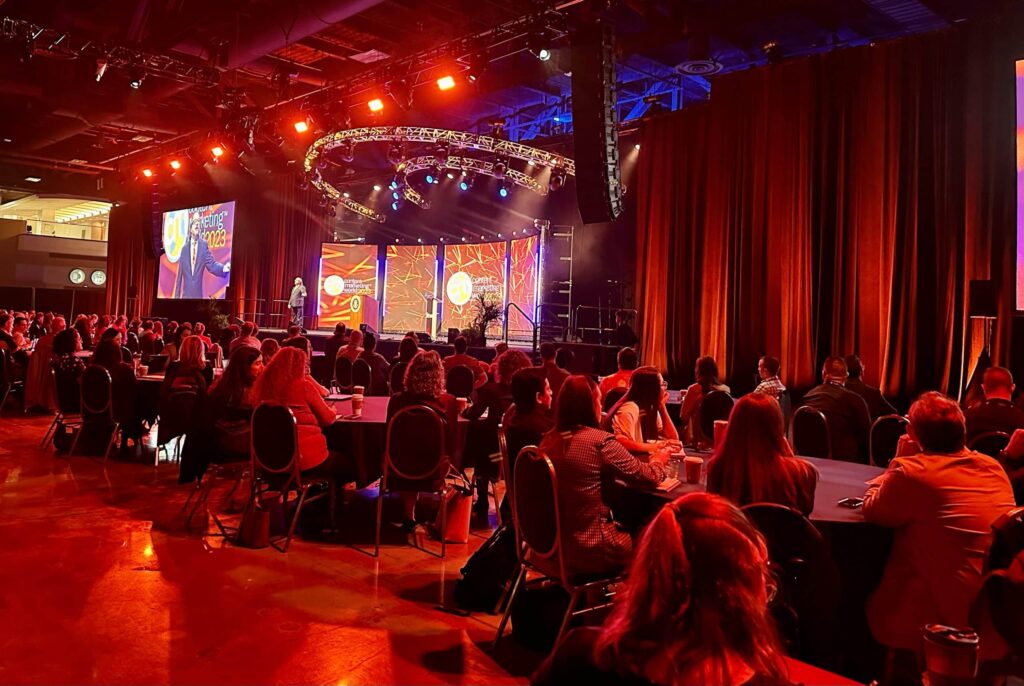
Rand worked his way to thought-leadership by classic pathways: hard work, experimentation, speaking engagements at early Danny Sullivan/Chris Sherman SearchEngineStrategies conferences, tackling ambitious data-driven research projects, ahead of the times tool-making, endless sharing, participation and blogging.
We first became aware of his work while researching AIMCLEAR‘s business model build-out in 2006. I couldn’t believe anybody was willing to give such incredible information away. We still carry DNA sewn into AIMCLEAR‘s agency model as a result.
He remains a lightening rod for some and sage to many. Typecast Rand Fishkin however you like, to our mind there are few individuals who have given as much, as tirelessly to our community. I’ve had the pleasure sharing several conference stages with Rand, interacted in other ways and happy to offer you a snapshot of what it’s like to spend time with him talking search and life.
[Marty] There’s been a lot of talk these days about whether SEO should focus on optimizing pages for search engines or users. Some like Shari Thurow assert that we should build pages for users which will “force” search engines to figure out better ways to index content. Others range from hard core crap-ass SEOs who don’t care about users. Most or us are somewhere in the healthy-in-between. How do you think about this matter?
[Rand] Oddly enough, I think I’d argue that it’s actually a complete non-issue and something that’s been hyped too much. I actually take full responsibility for that – my blog post on the subject had a title that was too aggressive and I saw a lot of responses around the web that didn’t read the content, just skimmed the title and wrote an opposing viewpoint. What I argued is that building for users is the priority and the primary goal of all websites. However, once you’ve designed an excellent site for your audience, to presume that search engines will simply visit and judge you on the great user experience you’ve made is folly. Search engines aren’t human – they can’t appreciate and enjoy the site or content in the same way users can. They’re naive about crawling certain kinds of paths humans can follow, they judge quality not on its own, but by the quantity and quality of links that point to a page.
“In short, you need to build and optimize with both users and search engines in mind and, honestly, over the last few years, it’s gotten pretty easy to find a solution to nearly every SEO problem that’s great for users and good for engines, too. Hence, I think it’s a non-debate.”
[Marty] As Google prepares to withdraw the only (crappy) non-personalized public display of their possible algorithmic regard for any given page, PageRank (conjecture), what are your thoughts on the importance and evolution of open-rank tools like SEOmoz LinkScape? What place will such APIs have in SEO’s future?
[Rand] Regardless of what happens with PageRank, our goals for mozRank and all the metrics we calculate inside Linkscape are to make them as valuable for SEOs trying to solve problems as possible. mozRank today is a great metric for comparing against PageRank to help determine penalties or see areas where link juice can be obtained (or needs to be).
In the future, we’re also working towards these kinds of uber-metrics (described in Ben’s latest blog post on correlation and ranking models) that are actually highly predictive of Google’s rankings. PageRank is neither of these things – Google doesn’t particularly want it to be overly valuable or prescriptive for SEO, and many people inside Google would like to drop it altogether. My feeling is that regardless of what happens with PageRank, our goals remain the same – to produce a set of metrics that add tons of value to the SEO process.
[Marty] Change in our industry has been beautifully tumultuous over the years. Things were so easy back in the day :). What timeless values, strategies and tactics have remained the same. What differences matter the most?
[Rand] Content that appeals to those who control the web’s link graph (bloggers, journalists, site builders, social media participants, etc.) has been very successful in the past and continues to succeed through visibility in both search engines and the evolution of the social web.
On the tactical front, classic on-page/on-site SEO hasn’t changed much in the last 7 years. Keyword research + good targeting combined with accessible site architecture, canonicalization and unique content has been the prescription for a long time now. Link building has changed a bit – classic manual link building is not nearly as effective or scalable as newer, more popular tactics like content licensing, social media marketing, viral content development/promotion, etc.
[Marty] Who are your mentors, in search, in life and why? How did they make a difference to your personal and professional evolution?
I’d certainly have to start with Gillian, my Mom and business partner, who kicked off my entrepreneurial adventure. Over the last few years, I’ve been blessed with a number of amazing mentors, though, from Kelly Smith and Michelle Goldberg (who sit on SEOmoz’s board of directors) to Dharmesh Shah of Hubspot and Nirav Tolia from Fanbase. In search, there have been amazing people like Danny Sullivan, Greg Boser, Anne Kennedy and Seth Besmertnik (and hundreds more). All of these people have encouraged me, enabled me to grow and taught me valuable lessons that I’m applying to the business every day.
[Marty] In your opinion, to what extent will search engines underemphasis the Internet’s link graph in favor of the social graph? What multi-channel buzz monitoring API tools (like PostRank) do you believe in. Do you think buzz tracking tools, which may define future-authority, can be gamed?
[Rand] Funny you should mention PostRank 🙂 We’re actually doing some correlation and data modeling stuff with them right now, and should have the results of that soon (which I’m fascinated to see). I certainly think the engines are looking at how to use social graph and buzz signals to improve their results, but I think it’s still up in the air about how much value those may add (and how easy they are to game/hard it is to find the signal amongst the noise). The link graph, in my mind, still has many years of life left in it, though I do believe social signals (like the Twitter integration Google/Bing both just completed) will also make their way into the discovery + ranking systems.
[Marty] Speaking of gaming search engines, coming up day 3 at Search Engine Strategies Chicago you’ll be speaking on the “Black Hat, White Hat: Does it Really Matter Anymore?” panel. Moderated by Frank Watson, you’ll be joined on the stage by David Naylor, Matthew Bailey, and Todd Friesen. This represents quite a clever, heavyweight and diverse panel. Can you give us any insight regarding what you’ll discuss?
[Rand] Even I’m not privvy to what’s going to be discussed! I suspect we’ll cover the distinctions between black and white hat and where/how those practices can impact businesses, individuals and consultancies that engage in them. Hopefully some fine blogger will cover the session 😉
[Marty] What is the most gratifying part of your work? What pisses you off the most? 🙂
[Rand] The best part of work is when a new tool or product we’ve made launches and I see people across the industry start adopting it as part of their SEO process. A lot of the tools inside Labs have been like that lately, and I’m always humbled and amazed to see so many people using our toolbar (though, with the analyze page button, it really is a big time saver).
The part that pisses me off worst is probably constraints that restrict production and execution of great ideas. SEOmoz is a startup which means limited resources and budget. As we grow, there’s more and more to maintain and that takes time away from new projects, which means development takes a long time. Producing quality software is more challenging and time-consuming then I ever imagined – it’s tough not to get emotional when you find out that “promised” deadline is slipping another 6 weeks. Still – we’ve got an amazing stuff that’s done some really remarkable things; I guess as a founder, I’m never supposed to be satisfied with the status quo 🙂
